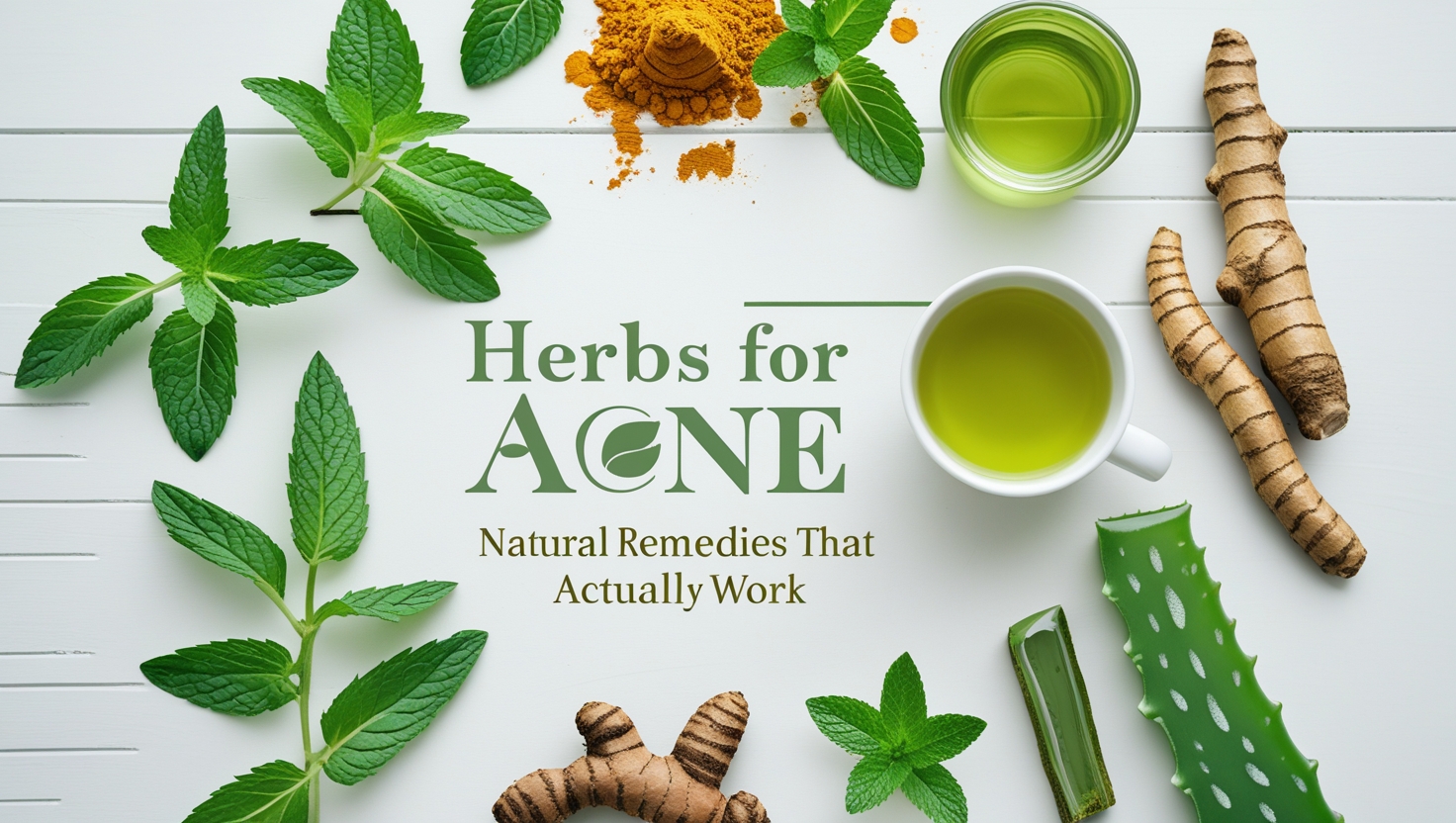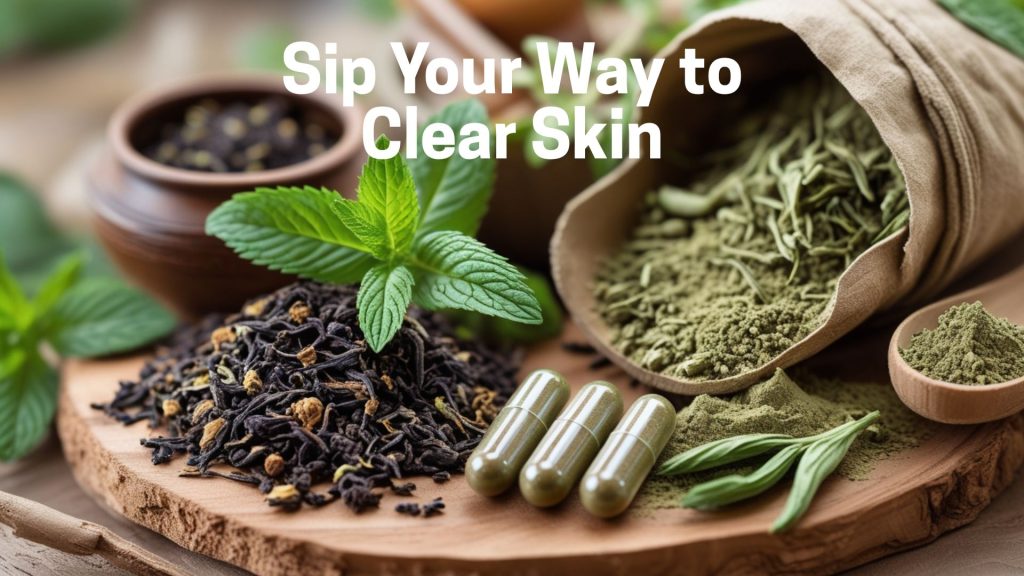You wake up, walk to the mirror… and boom—there it is. A big, angry pimple staring right back at you. Why now? Why always when you have plans? If you’re tired of creams that don’t deliver, it might be time to explore a gentler path—herbs for acne. Yup, nature’s got your back (and your skin).
If this sounds familiar, you’re not alone. Acne can feel like a never-ending battle and sometimes it shows up in the same spots over and over again (yeah, we’re looking at you, chin and back). You’ve probably tried face washes, creams, and maybe even those burning spot treatments that promise a lot but rarely deliver.
What if your skin just needs a little help from nature?
This is where herbs for acne come in natural ingredients that don’t just cover up pimples but actually help fix what’s going on under the surface. From calming inflammation to balancing hormones, these powerful plants might be your skin’s new best friends.
In this guide, we’ll walk through the best herbs for acne (even the stubborn hormonal kind), how they work, and easy ways to use them at home. Whether you want clearer skin, fewer breakouts, or just a more natural routine, this could be the skin-care reset you’ve been looking for.
What Are Herbs for Acne?
You’ve probably heard that drinking more water or washing your face often can help with acne but what if the real secret is growing in a garden?
Herbs for acne are natural plants that help your skin from the inside out. They’re not just about drying up a zit overnight (though some can do that too). They actually help your body fix the things that cause breakouts like too much oil, clogged pores, stress, or hormone imbalances.
Here’s what makes herbs special:
- Some herbs fight the bacteria that cause acne.
- Others calm down redness and painful swelling.
- A few help your body stay balanced especially if your breakouts are linked to hormones or stress.
- And some support your digestion and liver, which is weirdly connected to how clear your skin is.
People have been using these natural remedies for hundreds of years and now science is finally catching up and saying, “Hey, these actually work.”
So if you’re tired of creams that burn or products that promise too much, it might be time to give nature a shot.
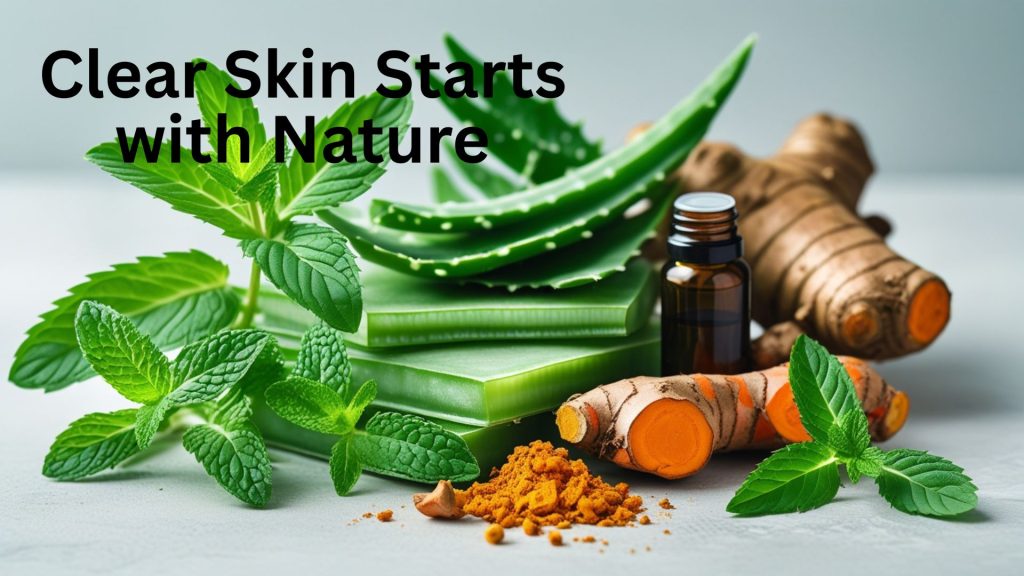
Oral Herbs for Acne: Best Herbs for Hormonal Balance
Ever notice how pimples pop up right before a big day or every time you’re stressed or close to your period? That’s not bad luck… it’s usually your hormones doing their thing. And when hormones go a little off track, breakouts love to join the party.
This is where oral herbs for acne come in. These are natural plants you take as tea, capsules, or powders and they work from the inside out. Instead of just drying out pimples, they help calm down the stuff that causes them in the first place especially when hormones are involved.
Here are some of the best ones to try:
Spearmint
You’ve probably had spearmint as a refreshing tea or minty gum, but it’s more than just a tasty treat for your mouth.
Why it helps: Spearmint is like your skin’s secret ally. It can help lower testosterone, which is a hormone that causes extra oil and acne. So, if you get breakouts along your chin or jawline, this could be your new best friend.
How to prepare it:
- Grab spearmint tea bags or dried spearmint leaves.
- Steep 1–2 teaspoons of dried leaves in hot water for about 5–10 minutes.
- Drink it 1–2 times a day. It’s super refreshing and an easy way to get your skin back on track.
Vitex (Chaste Tree Berry)
Vitex is a purple berry that comes from the chaste tree, and it’s been used for centuries to balance hormones, especially for women.
Why it helps: Vitex works by helping to balance hormones like estrogen and progesterone. It’s perfect for when your skin goes crazy around your period or other hormonal changes. By helping your body get those hormones in sync, vitex can reduce acne breakouts.
How to prepare it:
- You can find vitex capsules or liquid tinctures at health food stores.
- Just follow the instructions on the bottle (it’s usually one dose per day).
- It can take a few weeks to start noticing a difference, but hang in there it’s worth the wait!
Licorice Root
Licorice root might remind you of candy, but it’s actually a powerhouse herb that’s been used for thousands of years to help with skin and hormones.
Why it helps: Licorice root can calm inflammation and lower stress hormones like cortisol. Stress is a huge acne trigger, so by reducing it, licorice root can help clear up those breakouts caused by tension. Plus, it helps balance your overall hormones, which means fewer breakouts.
How to prepare it:
- Look for dried licorice root or licorice tea bags.
- Steep 1 teaspoon in hot water for about 5–7 minutes.
- Drink one cup a day to help reduce stress and balance your skin.
Maca Root
Maca is a root that comes from the Andes mountains, and it’s super popular for boosting energy and balancing hormones.
Why it helps: If stress is your skin’s worst enemy, maca can help. It’s known for helping your body adapt to stress and balancing out hormones. It’s especially great if you’re dealing with acne from hormonal changes during puberty or stressful times.
How to prepare it:
- Add maca powder to smoothies, oatmeal, or even milk.
- Or you can take maca capsules (just follow the dosage instructions).
- If you don’t love the taste of maca powder, capsules are an easy option!
By adding these herbs to your daily routine, you can help calm your skin from the inside out. Keep in mind, it may take a little time, but the results can be totally worth it!
Best Herbs for Acne Scars and Clear Skin
Acne is one thing, but those pesky scars left behind? Ugh, they can feel like the worst part! Whether they’re dark spots or raised scars, they can take a long time to fade. But guess what? There are some amazing herbs that can help speed up the process and help you get clearer, smoother skin.
Let’s dive into the best herbs for acne scars and how they can help clear your skin, so you can show off that glowing complexion!
Aloe Vera
Why It Helps: Aloe vera is basically a skin superhero. It’s super soothing, which is perfect for calming down any redness or irritation. It also helps your skin heal faster and can lighten dark spots from acne, so your skin can look even and clear.
How to Use:
- Take some fresh aloe vera gel (or buy some from the store if you don’t have a plant).
- Apply it directly to your scars or anywhere your skin feels irritated.
- Leave it on for about 20 minutes, then rinse it off with warm water.
- Do this 1–2 times a day for smooth, clear skin.
Turmeric
Why It Helps: You’ve probably heard of turmeric in your kitchen, but did you know it’s a total game-changer for your skin? It’s packed with anti-inflammatory magic that helps reduce redness and puffiness from acne. Plus, it lightens dark spots and helps even out your skin tone. Talk about a skin glow-up!
How to Use:
- Mix turmeric powder with a little honey or water to create a thick paste.
- Gently apply the paste to your acne scars.
- Leave it on for about 10–15 minutes.
- Rinse it off with warm water.
- Use this once a day, and your skin will thank you!
Rosehip Oil
Why It Helps: Rosehip oil is like liquid gold for your skin. It’s packed with vitamin A (that’s the same stuff in retinol!) and helps your skin regenerate. It’s amazing for fading scars, giving your skin a smoother texture, and keeping it soft and hydrated.
How to Use:
- Apply a few drops of rosehip oil directly to your acne scars.
- Gently massage it into your skin (be gentle, it’s a little magic in a bottle!).
- Do this before bed so it can work its magic overnight.
- Keep using it regularly, and you’ll see those scars slowly fade.
Lavender Oil
Why It Helps: Lavender isn’t just great for relaxation, it’s also amazing for your skin! Its calming properties help soothe inflammation and irritation, while also encouraging your skin to heal faster and fade those stubborn scars. Plus, it smells amazing!
How to Use:
- Mix a few drops of lavender essential oil with a carrier oil like coconut or jojoba oil.
- Gently massage the oil blend into your scarred areas.
- Use it 1–2 times a day for calming, clearer skin.
Neem
Why It Helps: Neem is a powerhouse herb that’s been used for centuries to heal the skin. It’s full of antibacterial goodness that helps clear up acne and fade dark spots. It’s like giving your skin a fresh start, helping it stay clear and smooth.
How to Use:
- Make a paste by mixing neem powder with water (or use neem oil if you prefer).
- Apply it to the areas where you have scars.
- Leave it on for 20–30 minutes, then rinse it off with warm water.
- Do this daily, and soon you’ll notice clearer, smoother skin.
These herbs are like your skin’s personal cheerleaders, helping you wave goodbye to scars and hello to clearer, smoother skin. With regular use, you’ll notice those stubborn spots fading and your skin looking fresher than ever!
Now, go ahead and treat your skin like the VIP it is. And if you’re thinking, “Wow, my skin’s about to level up” you’re absolutely right!
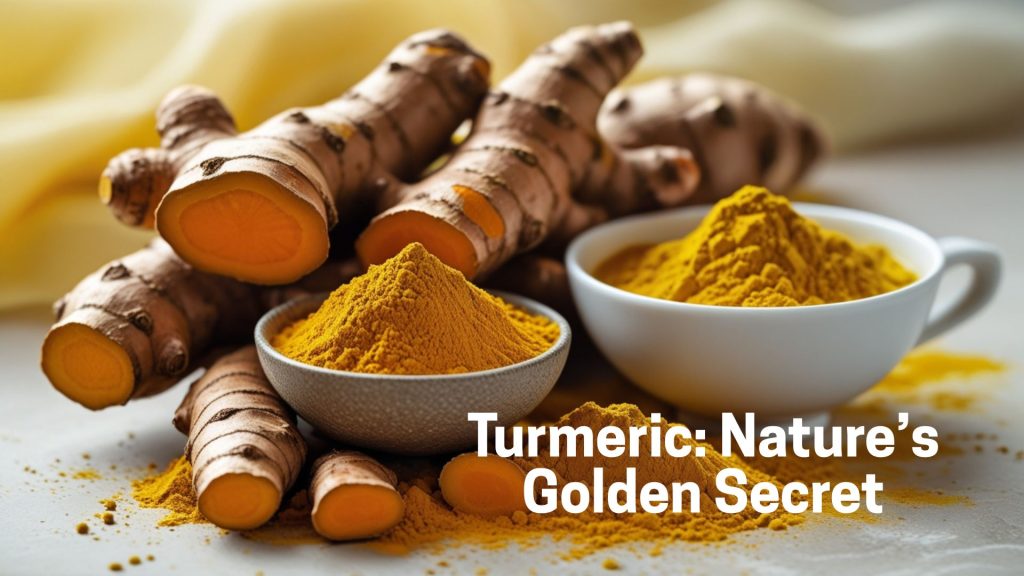
What is the Miracle Herb for Acne?
Let’s talk miracles, because if there’s one herb that deserves the spotlight in the world of Ayurvedic herbs for acne, it’s definitely Holy Basil, also known as Tulsi.
This herb has been a go-to in traditional Ayurvedic medicine for ages, and for good reason. Tulsi isn’t just a pretty plant, it’s a powerhouse when it comes to fighting acne. It’s packed with natural antibacterial and anti-inflammatory benefits that help kick acne-causing bacteria to the curb and calm down irritated, angry skin. Basically, it’s the skin’s version of a gentle but fierce bodyguard.
But here’s where it gets even cooler Tulsi works inside and out. It’s known for helping your body manage stress, and since stress can mess with your hormones (hello, surprise breakouts!), this herb plays defense on multiple levels. That’s why Tulsi is often called the “miracle herb” among Ayurvedic herbs for acne it doesn’t just treat the surface; it goes deeper.
How to Use Tulsi (Holy Basil) for Acne:
- Tulsi Tea (for inner balance):
Boil a few fresh or dried Tulsi leaves in water for 5–7 minutes. Strain and sip while it’s warm. Enjoy once or twice daily to support hormone balance and reduce stress. - Tulsi Face Mask (for breakout control):
Mix Tulsi powder with rose water (or plain yogurt for extra soothing) until you get a smooth paste.
Apply it to clean skin, leave it on for 15 minutes, then rinse off with cool water. - Tulsi Steam (for deep pore detox):
Toss a handful of Tulsi leaves into hot water. Lean over the bowl (careful, don’t burn yourself!), cover your head with a towel, and steam your face for 5–10 minutes.
Tulsi is like that friend who always knows what you need calming, healing, balancing, and always showing up for your skin. With all its powers, it’s no wonder it’s one of the most beloved Ayurvedic herbs for acne.
Honestly, if your skin could write thank-you notes, Tulsi would probably be at the top of the list.
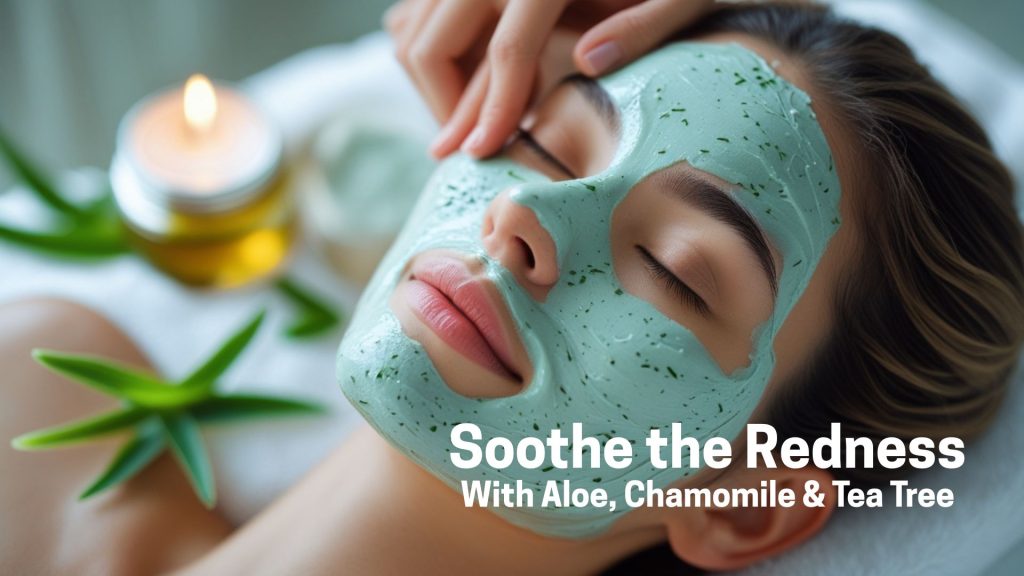
How to Reduce Acne Inflammation with Herbs?
You know that feeling when a pimple shows up red, swollen, and so angry-looking? That’s inflammation in action and it can make breakouts look and feel way worse. The good news? Nature has some pretty awesome anti-inflammatory herbs that help calm things down without drying your skin out or making it flake like a croissant.
Some of the best herbs to reduce acne inflammation are chamomile, turmeric, and calendula. These soothing superheroes work like a cool, calming breeze on irritated skin and they’re easy to use, too.
Why these herbs help:
- Chamomile – Not just a sleepy-time tea! Chamomile has natural calming and anti-inflammatory properties. It helps reduce redness and puffiness while gently relaxing your skin.
- Turmeric – This golden spice is basically famous for its anti-inflammatory powers. It contains curcumin, which helps reduce swelling and fights the bacteria that cause breakouts.
- Calendula – A gentle flower with serious skin-soothing skills. Calendula helps speed up healing, reduce irritation, and makes angry skin feel a whole lot happier.
How to Use These Herbs:
- Chamomile Compress
- Brew a strong cup of chamomile tea.
- Let it cool a bit, soak a clean cloth in the tea, and place it over inflamed areas for 5–10 minutes.
- Turmeric Spot Treatment
- Mix a pinch of turmeric with honey or aloe vera gel to make a thick paste.
- Dab it gently on red, swollen pimples. Leave on for 10–15 minutes, then rinse.
- Calendula Toner
- Steep dried calendula flowers in hot water for 10–15 minutes.
- Once cool, strain and use it as a gentle toner with a cotton pad (store leftovers in the fridge!).
A little herb power can go a long way in calming down those volcanic breakouts. Plus, using these natural remedies feels way more comforting than piling on harsh chemicals.
Also, side note: turmeric might stain your pillowcase… but hey, glowing skin comes with a few battle marks, right?
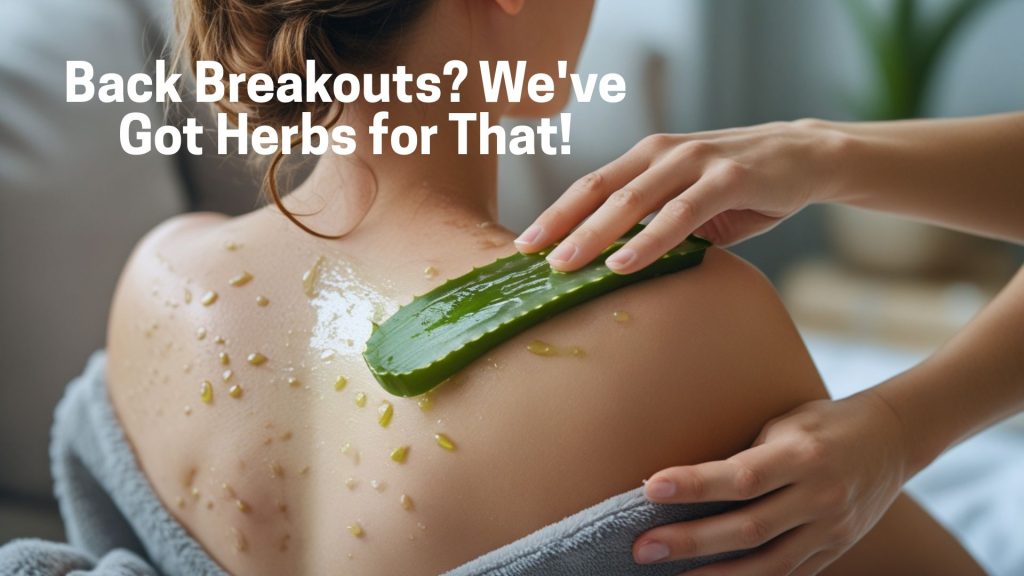
Home Remedies for Spots on the Back (Back Acne)
Back acne, or “bacne” (yes, that’s really what it’s called), can be super annoying. It shows up in places you can’t easily see, reach, or treat and just when you want to wear your favorite tank top, boom: surprise spot party.
But don’t worry, your back doesn’t have to deal with this alone. There are easy, natural home remedies using herbs that can help clear up those stubborn bumps and calm irritated skin without any harsh scrubbing.
Best Herbal Helpers for Bacne:
- Neem – This powerful herb is antibacterial and anti-inflammatory. It helps fight the germs that cause breakouts and calms redness and itching.
- Tea Tree Oil – Okay, technically not an herb, but it’s a plant-based favorite. It’s great at killing acne-causing bacteria and drying up pimples fast.
- Aloe Vera – Soothing, cooling, and perfect for calming irritated skin after a shower or scrub.
- Mint Leaves – Yep, your skin loves mint too. It has a cooling effect that reduces redness and inflammation.
How to Use Them for Bacne Relief:
- Neem Bath Soak
- Boil a handful of neem leaves in water for 10–15 minutes.
- Strain and pour into your bathwater. Soak for 15–20 minutes, 2–3 times a week.
- Tea Tree Spray
- Mix 10 drops of tea tree oil with 1/2 cup of water in a spray bottle.
- Spray lightly on clean back skin after showering (avoid overdoing it—it’s strong!).
- Aloe Vera Back Mask
- Apply a thick layer of pure aloe vera gel to clean skin.
- Leave it on for 20 minutes, then rinse off in the shower.
- Mint Leaf Paste
- Crush fresh mint leaves into a paste and apply it to spots.
- Leave on for 15–20 minutes before rinsing. Refreshing and effective!
Back acne is annoying, no doubt, but treating it doesn’t have to feel like a chore. Think of it like giving your back a secret spa day. You’re in the shower, mint paste on, tea tree spray in hand, feeling like a skincare wizard casting “clear skin” spells behind your back (literally). It’s weirdly fun. And hey, if anyone walks in on your minty ritual, just tell them it’s ancient herbal magic because honestly, it kind of is.
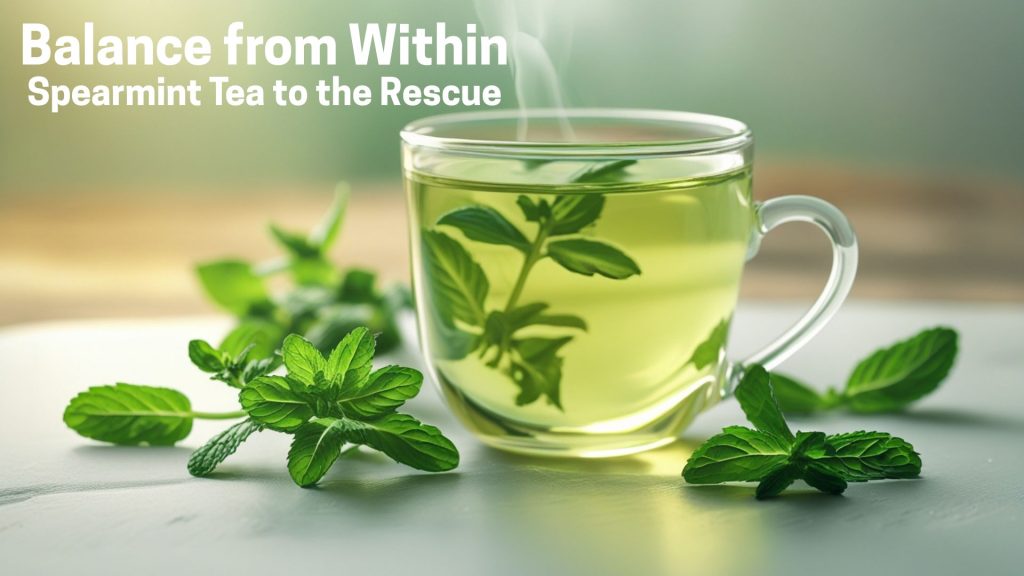
Natural Remedies for Hormonal Acne
Hormonal acne is like the mood swings of your skin, it’s cool one minute, and then boom: chin volcano. This kind of breakout usually shows up during your period, stressful school weeks, or when your body’s hormones decide to host a full-blown party. But don’t worry, you’re not stuck watching your skin throw a tantrum every month.
There are some awesome natural remedies that don’t just fight acne they whisper to your hormones: “Chill, please.”
Natural Remedies to Try:
- Reishi Mushroom
Think of this as the chill monk of the mushroom world. It helps your body relax and deal with stress the kind that triggers breakouts.
How to use:- Mix ¼ teaspoon of reishi powder into hot cocoa or your morning smoothie.
- Tastes earthy, but your skin will love it.
- Licorice Root
Not the candy (sorry). The real root helps cool inflammation and balance hormones like a boss.
How to use:- Steep 1 teaspoon in hot water for 5–7 minutes to make a naturally sweet tea.
- Sip once a day, especially during PMS week.
- Nettle Leaf
It’s basically a green superhero—packed with vitamins that support healthy skin and hormones.
How to use:- Brew 1–2 cups of nettle tea a day.
- Add a drizzle of honey if you don’t love grassy vibes.
- Pumpkin Seeds
Tiny but mighty. These are full of zinc, which helps control oil and calm down angry skin.
How to use:
- Eat a small handful daily.
- Bonus: they make a crunchy salad topping. Win-win.
Hormonal acne may have started the drama but now you’ve got a secret herbal squad who’s not here for the chaos. Reishi’s meditating, nettle’s flexing, licorice is serving sweet balance, and pumpkin seeds are just vibing. Honestly, it’s like turning your skin into a zen garden.
Best Herbal Treatment for Acne: Combining Oral and Topical Remedies
Acne doesn’t just live on the surface of your skin—it’s a whole body affair. That’s why the best way to fight it is by going in all directions: inside and out. It’s like fighting acne from both sides like a skincare double agent. Topical remedies work right where the pimples are, while oral remedies tackle the root causes, like hormone imbalances or stress.
By combining both, you create a full-on defense team for your skin. So, let’s get your arsenal ready: Here’s how you can team up the best herbs for acne, both inside and out, to bring the fight to the pimples.
Oral Remedies to Boost Your Skin from the Inside:
- Turmeric
This golden spice isn’t just for curries. It’s got superpowers that help reduce inflammation and clear up acne from the inside.
How to use:- Add ½ teaspoon of turmeric powder to warm water or milk (make a “golden milk” drink).
- Or, mix it into smoothies for a spicy twist.
- Burdock Root
Known for purifying the blood and fighting inflammation. It’s like hitting the reset button for your skin.
How to use:- Drink 1 cup of burdock root tea, or take it in supplement form.
- It’s strong stuff, so start with small doses!
Topical Remedies for Spot Treatment:
- Tea Tree Oil
The acne-fighting superstar. This oil works directly on blemishes and reduces redness and swelling.
How to use:- Apply a drop of diluted tea tree oil to pimples with a cotton swab.
- Use it after cleansing and before moisturizing.
- Aloe Vera Gel
Aloe is basically your skin’s chill friend—soothing, hydrating, and reducing irritation.
How to use:- Apply fresh aloe vera gel to problem areas.
- Leave it on for 10–15 minutes and rinse off. It’s perfect after a long day.
Putting It All Together:
You can be the ultimate acne-fighting hero by pairing both oral and topical remedies. Imagine your skin is a castle, and turmeric, tea tree oil, and burdock root are your trusty knights on the frontlines, defending against the pimple dragon. Plus, aloe vera’s got your back like a loyal sidekick, keeping everything calm and cool while you battle.
How to Use Herbal Remedies for Acne Safely
Herbal remedies are like a hidden treasure chest for clear skin, but, just like any treasure, you’ve got to know how to use them the right way. The last thing you want is to dive into the world of herbs and end up with irritated skin or other surprises. So, let’s talk about how to keep things safe and make sure your herbal acne treatments work without the drama.
Tips for Safe Use of Herbal Remedies:
-
Patch Test First
Your skin isn’t a fan of surprises. Before going full steam ahead with that amazing-smelling tea tree oil or spicy turmeric mask, test it on a small patch of skin (like on your wrist or behind your ear). Wait for 24 hours to see if any irritation pops up.
Why it helps: This gives your skin a chance to say if it’s cool with the new herb. If no red flags, you’re good to go!
-
Don’t Overdo It
Herbs are powerful, and less is more. You might be tempted to slather that aloe vera gel all over your face, but trust us it’s not a spa day every day. Stick to the recommended amount and avoid using too many herbs at once.
Why it helps: Too much of a good thing can be, well, too much! Your skin will thank you for not overloading it.
-
Check for Allergies
You know how some people are allergic to peanuts? Well, herbs can have the same effect. If you’re new to a specific herb, check the label or do some research to see if you might be allergic to it.
Why it helps: Prevents the dreaded allergic reaction, because no one has time for that, right?
-
Consult a Professional
Just because something is “natural” doesn’t mean it’s always 100% safe for everyone. If you’re unsure about a herb, especially if you have a pre-existing skin condition or are taking medication, chat with a professional (like a dermatologist or herbalist).
Why it helps: You’ll get personalized advice and avoid any accidental mix-ups. It’s like having a skincare GPS.
Pro Tip: Start slowly, stick to one or two remedies, and see how your skin reacts. Think of it like a slow-and-steady race, not a sprint. Once you find what works for you, your skin will be glowing like a natural beauty queen!
By following these simple tips, you’ll avoid the “oops” moments and make sure your herbal acne journey is as smooth as possible. No one wants to go from clear skin to surprise breakouts, so take it slow, have fun with it, and let your skin enjoy the herbal goodness.
Conclusion
And there you have it, your ultimate guide to battling acne with herbs! Whether you’re sipping on a soothing cup of spearmint tea, dabbing tea tree oil on stubborn pimples, or munching on pumpkin seeds for that extra boost of zinc, herbal remedies are here to help you take control of your skin.
Remember: acne might try to crash the party, but with the right herbs, you’re totally in charge. From fighting hormonal breakouts to healing those post-pimple scars, herbs are like your skin’s personal squad, ready to fight for clear, healthy skin.
But hey, don’t forget patience is key! Just like with anything, results take time. So, keep rocking your new herbal routine, enjoy the process, and most importantly, trust that clear skin is on its way.
You’ve got this, and your skin is about to thank you. Say goodbye to breakouts, and get ready for that clear, glowing skin you deserve!
FAQs
How long will it take to see results from herbal acne treatments?
Herbal remedies can take time, usually a few weeks, to show visible results. Stick with it and be patient!
Can herbs cure acne permanently?
Herbs can help manage acne and prevent breakouts, but it’s important to combine them with a healthy lifestyle and skincare routine.
Can herbal remedies help with hormonal acne?
Yes! Spearmint tea and maca root are especially beneficial for hormonal acne, as they can help balance hormones that trigger breakouts, particularly around the chin and jawline.
Is it safe to use herbal remedies for acne daily?
Yes, but it’s important to use them correctly. Always follow the recommended doses and try not to overdo it. For topical remedies, always patch-test first, and for internal remedies, start slowly to see how your body reacts.
Can I combine herbal treatments with other acne medications?
If you're using prescription acne medications, it’s always best to check with your doctor before adding herbal treatments. While herbs are generally safe, they can interact with certain medications, so it’s important to ensure compatibility.
Are there any side effects of using herbal remedies for acne?
Most herbal remedies are safe, but they can cause irritation if used incorrectly. For example, tea tree oil can be irritating if not diluted, and turmeric may stain your skin temporarily. Always patch-test first and follow instructions carefully.

